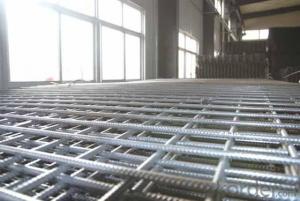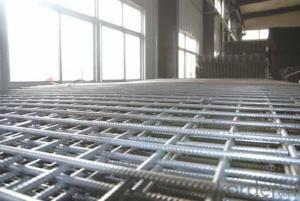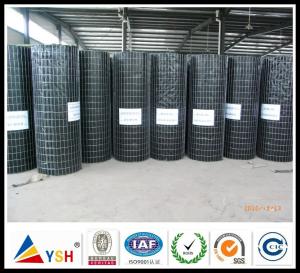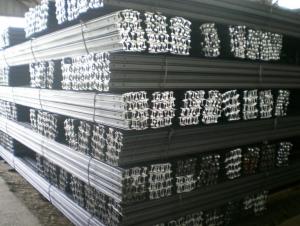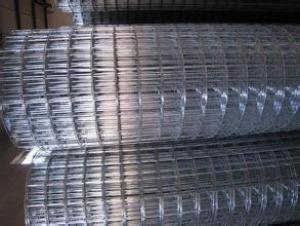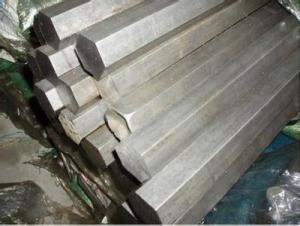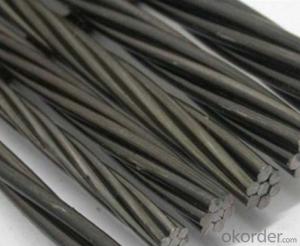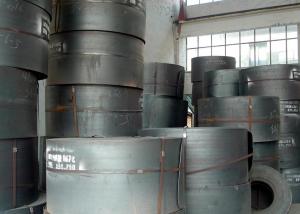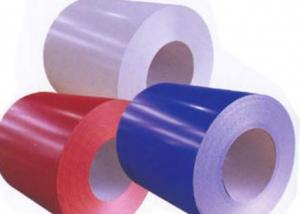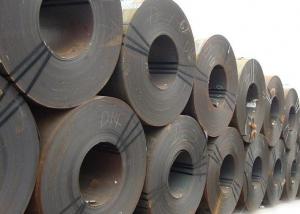STEEL BAR WELDED MESH
- Loading Port:
- China Main Port
- Payment Terms:
- TT OR LC
- Min Order Qty:
- -
- Supply Capability:
- -
OKorder Service Pledge
OKorder Financial Service
You Might Also Like
.Steel Bar welded wire mesh made of low carbon steel wire rod, which undergo a cold-rolling and straightening process and arranged vertically in proper spacing in the welding machine at the line wires and cross wires, joint together by mean of electric resistance spot-welding, also directly welded with hot rolled wire rods
The reinforcing mesh has following merits:Great hardness, good elasticity, uniformity spacing high welding strength, hard to deform by trample
2. Properties of products
Iterm | HRB-335Hot-rolled | HRB-335Hot-rolled | HRB-550cold-rolled |
Tensilestrength (MPA) | .>490 | .>570 | >550 |
Yield strength (MPA) | >335 | >400 | >550 |
Elongation % | >16 | >14 | >8 |
Shearing force (N) | >150 x AS | .150 XAS | >150 XAS |
3.Technical standard:
Cold rolled ribbed steel bar: CRB 550
Hot rolled ribbed steel bar: HRB 400
We not only produce as per the national standard of welded mesh fabric for reinforcement of concrete but also the products according to the AS/NZS 4671:2001( Australian and New Zealand standard), BS4483 (English standard), DIN488 (Germany standard),SIA 16211 AND NFA35-016 France and etc.
4.The specification of Steel Bar Welded Wire Mesh
Wire diameter:4mm-16mm
Space center of neighbor steel bar
Vertical : 100mm,150mm,200mm,300mm
Horizontal:100-400mm
Width:0.5m-3m
Lengt:2m-6m
Steel bar welded grating is well received and popularly used as a kind of new, efficient and excellent quality concrete structure steel materials in various industrial and civil buildings. It is mainly used in making of floors, ceilings, wall body, concrete road, bridge surface, airport, tunnel lining, concrete piping, etc.
- Q: How is steel pipe coated for underground gas pipelines?
- Steel pipe for underground gas pipelines is typically coated using a three-layer coating system. The first layer is a fusion-bonded epoxy (FBE) primer that provides corrosion protection. The second layer is an adhesive that helps bond the FBE to the pipe. Finally, the third layer is a polyethylene or polypropylene coating that acts as a protective outer layer. This coating process ensures the steel pipe is well-protected against corrosion and other potential damages in underground environments.
- Q: What are the common welding techniques used for steel?
- The common welding techniques used for steel include shielded metal arc welding (SMAW), gas metal arc welding (GMAW), flux-cored arc welding (FCAW), and gas tungsten arc welding (GTAW).
- Q: How do steel products contribute to the construction of theme-based historical reenactment centers?
- Steel products contribute to the construction of theme-based historical reenactment centers in various ways. Firstly, steel is a strong and durable material that can be used for creating sturdy structures such as buildings, stages, and seating areas. This ensures the safety and longevity of the center's infrastructure. Additionally, steel products like beams, columns, and reinforcements are essential in providing structural support and stability to the various structures within the center, allowing for the construction of large and intricate designs. Moreover, steel can be molded and shaped into different forms, enabling the creation of decorative elements, props, and replicas of historical artifacts, enhancing the overall authenticity of the reenactment center. Overall, steel products play a vital role in constructing theme-based historical reenactment centers by providing strength, stability, and authenticity to the structures and props used in recreating historical events.
- Q: What are the different types of steel products used in the manufacturing of tools and machinery?
- There are several types of steel products commonly used in the manufacturing of tools and machinery. Some of the most common ones include carbon steel, alloy steel, stainless steel, and tool steel. Carbon steel is a popular choice due to its affordability and high strength. Alloy steel contains additional elements such as manganese, chromium, and nickel, which enhance its properties like durability and corrosion resistance. Stainless steel is known for its resistance to rust and corrosion, making it ideal for tools and machinery used in harsh environments. Lastly, tool steel is specifically designed for tool manufacturing, offering exceptional hardness, wear resistance, and toughness.
- Q: What are the applications of steel in the pharmaceutical industry?
- Steel is commonly used in the pharmaceutical industry for the construction of equipment and machinery such as storage tanks, reactors, and process vessels. Its high strength, corrosion resistance, and durability make it ideal for handling and storing various pharmaceutical substances. Steel is also used for the production of sterile packaging materials and containers, ensuring the safety and integrity of pharmaceutical products. Additionally, steel is utilized in the construction of cleanrooms and other controlled environments to maintain hygienic conditions necessary for pharmaceutical manufacturing.
- Q: How are steel products used in the food processing industry?
- Steel products are widely used in the food processing industry for a variety of applications. They are used to manufacture machinery and equipment such as mixers, conveyors, and cutting tools, which are essential for processing, packaging, and storing food products. Steel is preferred due to its durability, resistance to corrosion, and ability to withstand high temperatures and harsh conditions. Additionally, stainless steel, a type of steel that contains chromium and nickel, is commonly used for food contact surfaces, storage tanks, and utensils as it is hygienic, easy to clean, and prevents contamination. Overall, steel products play a crucial role in maintaining food safety, efficiency, and quality in the food processing industry.
- Q: What are the applications of steel plates?
- Steel plates have a wide range of applications across various industries such as construction, automotive, manufacturing, and shipbuilding. They are commonly used as structural elements in buildings, bridges, and infrastructure projects. Steel plates are also utilized in the production of machinery, equipment, and vehicles due to their strength, durability, and versatility. Additionally, they find applications in the energy sector for the construction of power plants and pipelines.
- Q: What are the different types of steel products used in the manufacturing of luxury goods?
- The different types of steel products used in the manufacturing of luxury goods include stainless steel, Damascus steel, and carbon steel. Stainless steel is a popular choice due to its corrosion resistance and durability. Damascus steel is known for its unique pattern and high strength, making it a favored material for luxury knives and jewelry. Carbon steel is valued for its hardness and edge retention, commonly used in high-end chef knives and timepieces.
- Q: What are the properties and characteristics of stainless steel?
- Stainless steel is a versatile and durable material with several notable properties and characteristics. Firstly, it has a high resistance to corrosion, making it suitable for use in various environments, including those exposed to moisture and chemicals. Additionally, stainless steel exhibits excellent strength and toughness, allowing it to withstand heavy loads and impacts. It is also known for its aesthetic appeal, with a sleek and polished appearance that is often desired in architectural and decorative applications. Furthermore, stainless steel is highly hygienic, as it is non-porous and easy to clean, making it ideal for use in the food and medical industries. Overall, stainless steel's combination of corrosion resistance, strength, aesthetic appeal, and hygiene makes it a popular choice in various industries and applications.
- Q: What are the different types of steel coatings?
- There are various types of steel coatings, including galvanized coatings, epoxy coatings, powder coatings, and organic coatings.
Send your message to us
STEEL BAR WELDED MESH
- Loading Port:
- China Main Port
- Payment Terms:
- TT OR LC
- Min Order Qty:
- -
- Supply Capability:
- -
OKorder Service Pledge
OKorder Financial Service
Similar products
Hot products
Hot Searches
Related keywords
